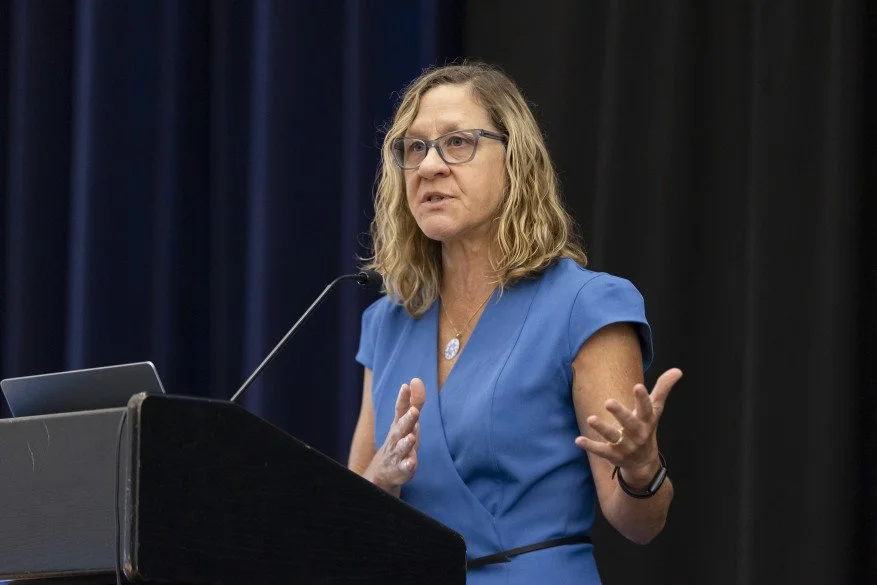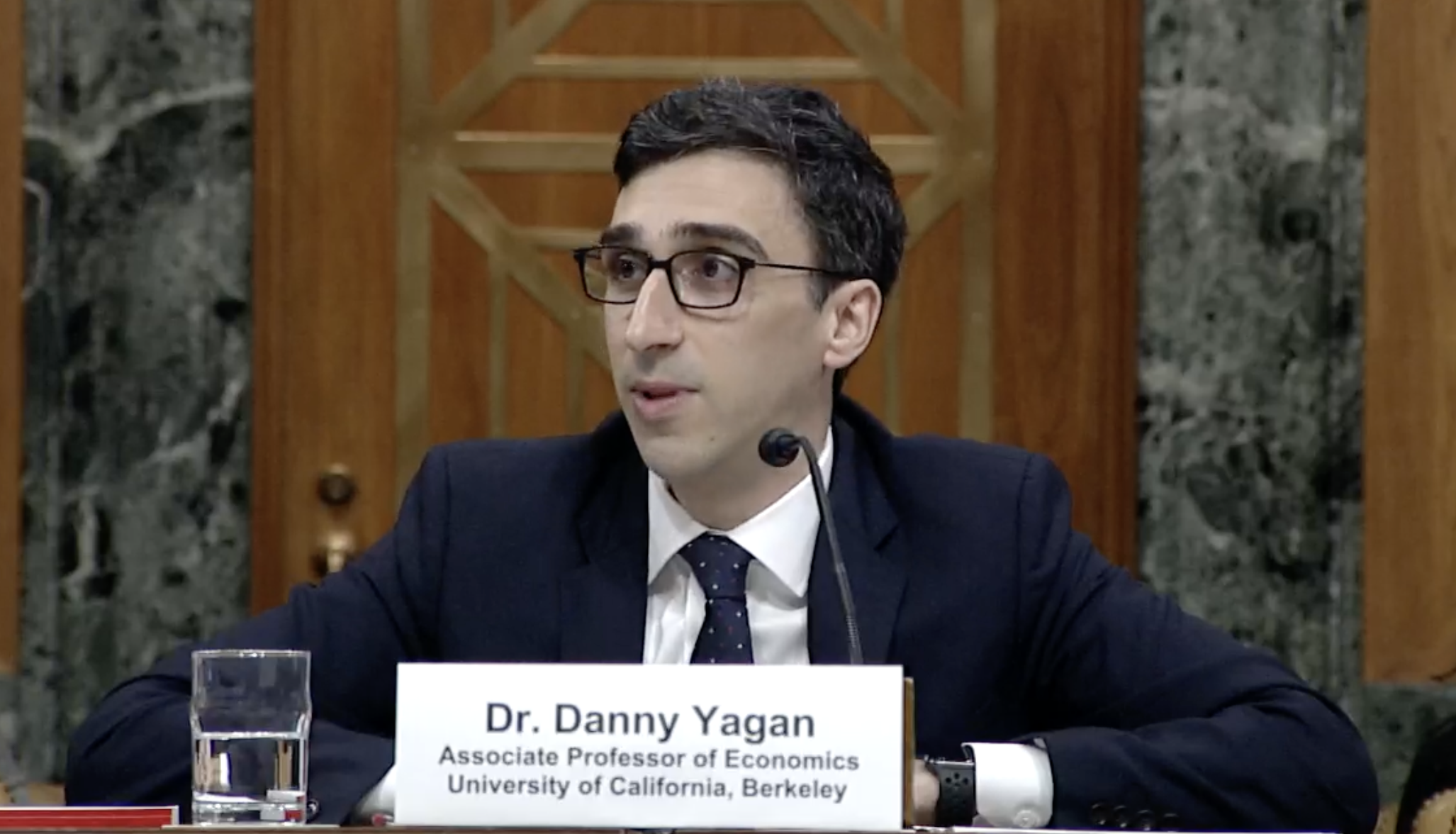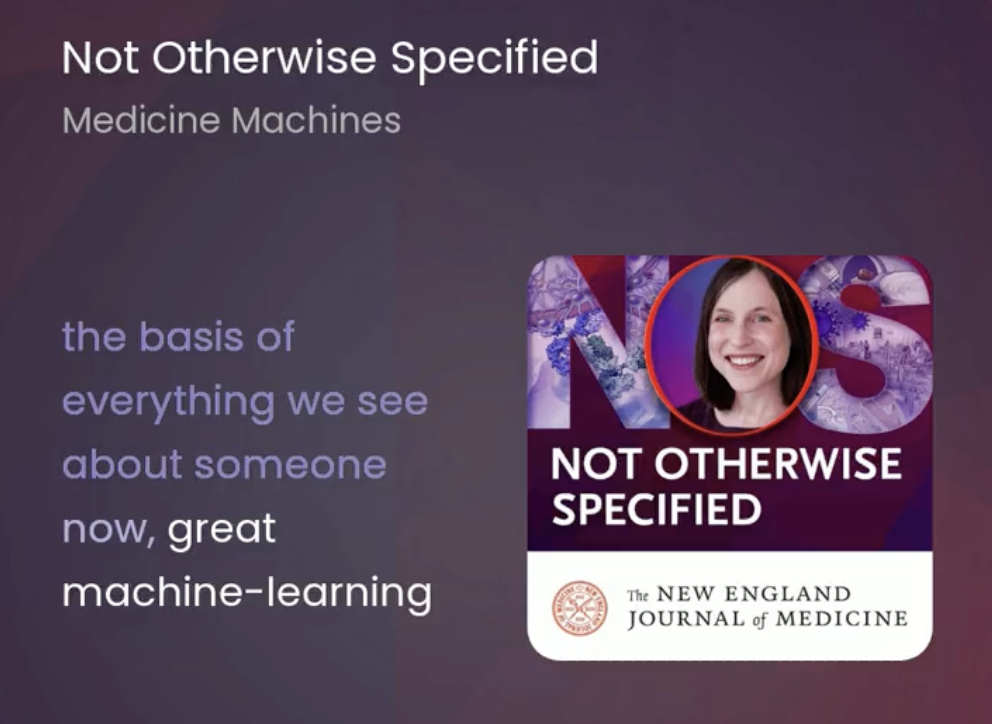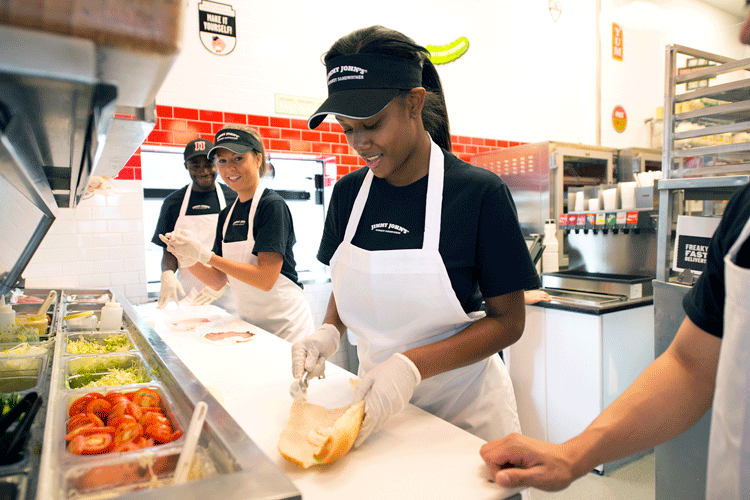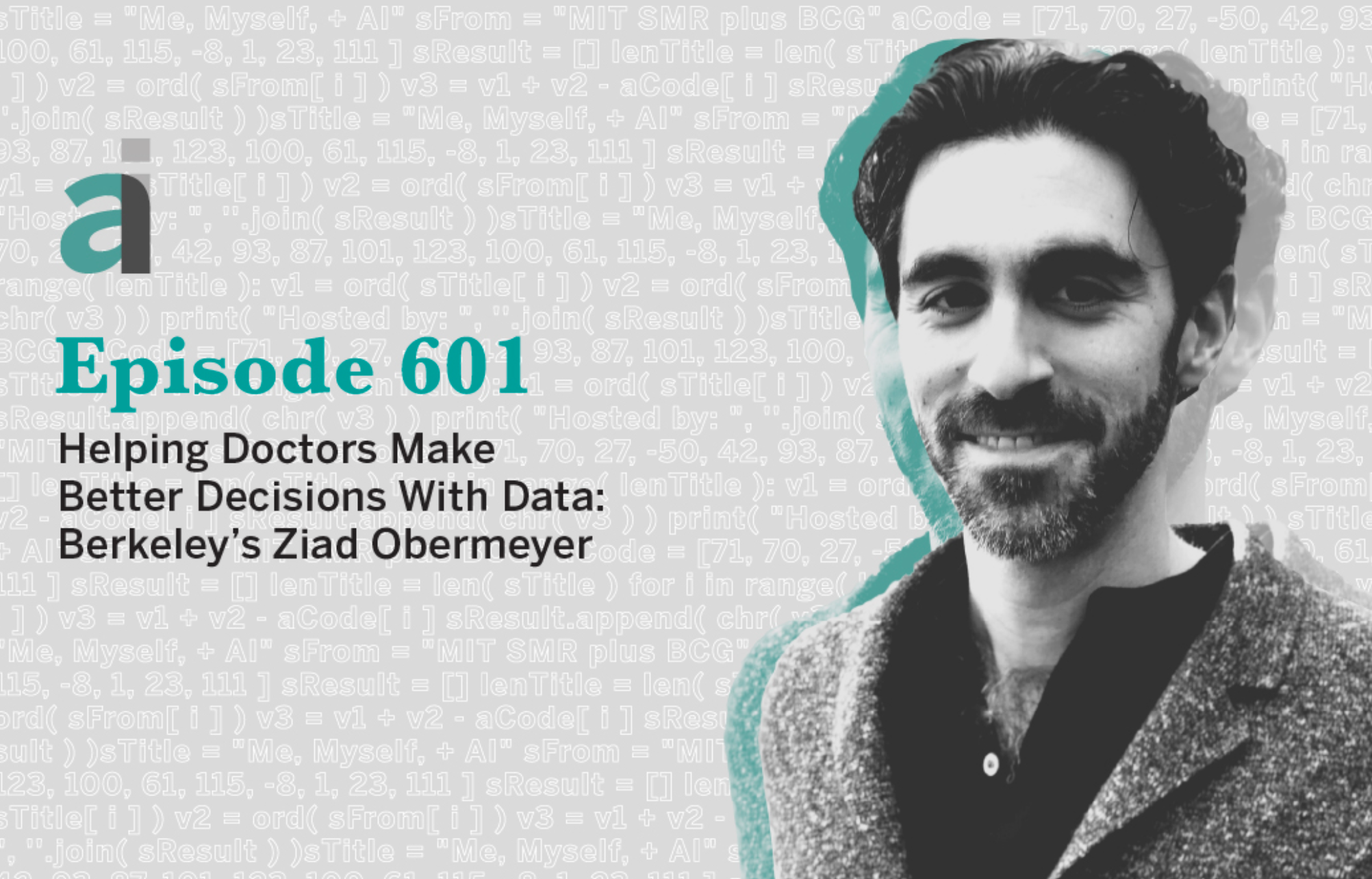A new article in CEPR highlights research from Reed Walker, Suvy Qin, + coauthors that leverages 40 years of administrative data to improve our understanding of the relationship between wealth and exposure to air pollution. The researchers find that, at all income levels, Black individuals are exposed to significantly higher levels of air pollution than white individuals. Learn more.
California's $20 fast-food minimum wage improves pay at small cost to consumers
Since its passage nearly a year ago, California’s fast-food minimum wage has increased wages for workers by 8-9%, finds a new analysis from Michael Reich + coauthors at UC Berkeley’s Center for Wage and Employment Dynamics. Check out this article from Axios to learn more about the study’s results.
Is the U.S. Civil Service really broken?
In this Q&A from the Haas School of Business, O-Lab faculty affiliate Guo Xu unpacks what research has to tell us about the US civil service and bureaucratic reform, and explains the implications of recent executive orders from the Trump administration. Read the full article.
Higher housing costs offset higher wages in big cities, says new study
Historically, moving to a city has been seen as a pathway to greater economic mobility – as cities offer more and often higher-paying jobs. Still, migration from low-income to high-income states has slowed in recent years. In Forbes, Adam Millsap unpacks research from Jesse Rothstein, David Card, and Moises Yi investigating why. Read the full article.
Climate change causes conflict: How policy can respond
In a column from CEPR, Marshall Burke, Solomon Hsiang, and Ted Miguel review literature on the relationship between conflict and climate. The authors highlight that, across contexts, studies consistently point to the social safety net as a tool to mitigate increases in violence induced by climate change by protecting household incomes from climate shocks. Read the full article.
5 Questions for Faculty: Professor Hilary Hoynes
In this installment of the Goldman School of Public Policy’s “Five Questions for Faculty” series, O-Lab Faculty Director Hilary Hoynes, Associate Dean and Chancellor’s Professor of Economics and Public Policy, discusses how the upcoming general election could effect the US social safety net. Read the article here.
New open-source volume on the effects of the 2021 Expanded Child Tax Credit
Newly released in the Annals of The American Academy of Political and Social Science, “Evaluating the Effects of the 2021 Expansion of the Child Tax Credit” brings together some of the strongest research on the 2021 CTC expansion. Edited by O-Lab Faculty Director Hilary Hoynes, Megan Curran of Center on Poverty and Social Policy at Columbia University, and Zachary Parolin, the volume frames the policy change in historical and international contexts, presents the expansion’s near-term impacts, and explores the potential, long-term effects of a permanently expanded credit, in addition to alternative policy designs. Explore the full volume here.
Danny Yagan testifies to Senate Budget Committee
On April 18th, Danny Yagan testified to the Senate Budget Committee. Yagan explained 2 simple ways the wealthy evade taxes, and advocated for raising effective tax rates on the rich through a minimum income tax to increase federal revenues. Watch the full hearing here, or read the testimony.
Mathilde Muñoz in Le Monde
An article from LeMonde highlights the journey of new affiliate Mathilde Muñoz to Berkeley’s economics department, and how her background influences her research. Read more here.
Ziad Obermeyer in NEJM's "Not Otherwise Specified" Podcast
In a recent episode of “Not Otherwise Specified,” a podcast hosted by the New England Journal of Medicine, Ziad Obermeyer explains how machine-learning techniques can aid in establishing a diagnosis and can be a beneficial tool for predictive medicine. Listen to the episode here.
David Card lectures at Emory University
“Minimum wage is one of these super polarizing issues, and with more polarization, it’s become a super symbolic issue.” A recent article in The Emory Wheel recaps David Card’s public talk at Emory University. Read more here.
Michael Reich in Berkeley News
“A minimum wage increase doesn’t kill jobs,” says Michael Reich. A new article from Berkeley News highlights a recent working paper by Reich and coauthors at IRLE on the impact of minimum wage laws on small businesses, which finds that higher wages eases employee recruitment and retention. Read the news piece here, and check out the full working paper.
Conrad Miller on Job Suburbanization & Black Employment
In a National Bureau of Economic Research video feature, Conrad Miller breaks down his paper at the intersection of racial equity, labor, and geography: “When Work Moves: Suburbanization and Black Employment.” Miller finds that highway construction resulted in job suburbanization, increasing the employment gap between black and white workers. Watch the video here.
Ziad Obermeyer on "Me, Myself, and AI"
In a recent episode of “Me, Myself, and AI,” a podcast from MIT’s Sloan School of Management, Ziad Obermeyer discusses his research on algorithmic bias and the use of artificial intelligence and machine learning in predictive analytics in health care. Listen to the episode here.
Emmanuel Saez on State Wealth Taxes
In lieu of a federal wealth tax, state lawmakers in California, New York, and Washington have proposed legislation to tax billionaires on a state level. A recent article from the Washington Post explores these efforts, featuring commentary from Emmaneul Saez, who was enlisted by legislators to help draft the new policies. Check out the full article.
Hilary Hoynes in VoxEU
How does losing access to nutritional support impact families? A VoxEU column highlights research from O-Lab Faculty Director Hilary Hoynes and coauthors on the Special Supplemental Nutrition Program for Women, Infants, and Children (WIC). Researchers find that after losing access to the program, adult women consume less to shield children from nutritional losses. Read the article here.
Enrico Moretti on Tech Hubs
MIT’s Sloan School of Management recently highlighted a new working paper from Enrico Moretti and coauthors that examines the balance between local productivity and local costs in research and development, and finds that the productivity gains from a density of scientific talent generally outweigh the additional costs. Still, their findings suggest that cities with exceptionally high talent density have labor and real estate costs that dwarf gains. Learn more about the study.
Michael Reich on State Minimum Wage Increases
In CNN, Michael Reich discusses recent state minimum wage increases in the context of existing high inflation, suggesting that recent minimum wage increases will not necessarily result in dramatic increases in prices and labor costs in low-wage sectors. Read more here.
Hilary Hoynes and Reed Walker on the Future of Family
Hilary Hoynes and Reed Walker were recently cited in a New York Times op-ed by Paul Krugman on the importance of the Biden administration’s new support for child care and education. Among the cited work was Hoynes’ research on SNAP benefits and other safety net investments in children.
Sol Hsiang on The Economic Damages of Climate Change
Sol Hsiang’s research at the Climate Impact Lab was featured in the New York Times Magazine cover story this September. The data suggests that the impacts of climate change on the poorest Southern counties could lead to economic damages greater than a third of their total GDP. The article explores the mass migrations that such damages could invoke.
Take a look at the full article here!
